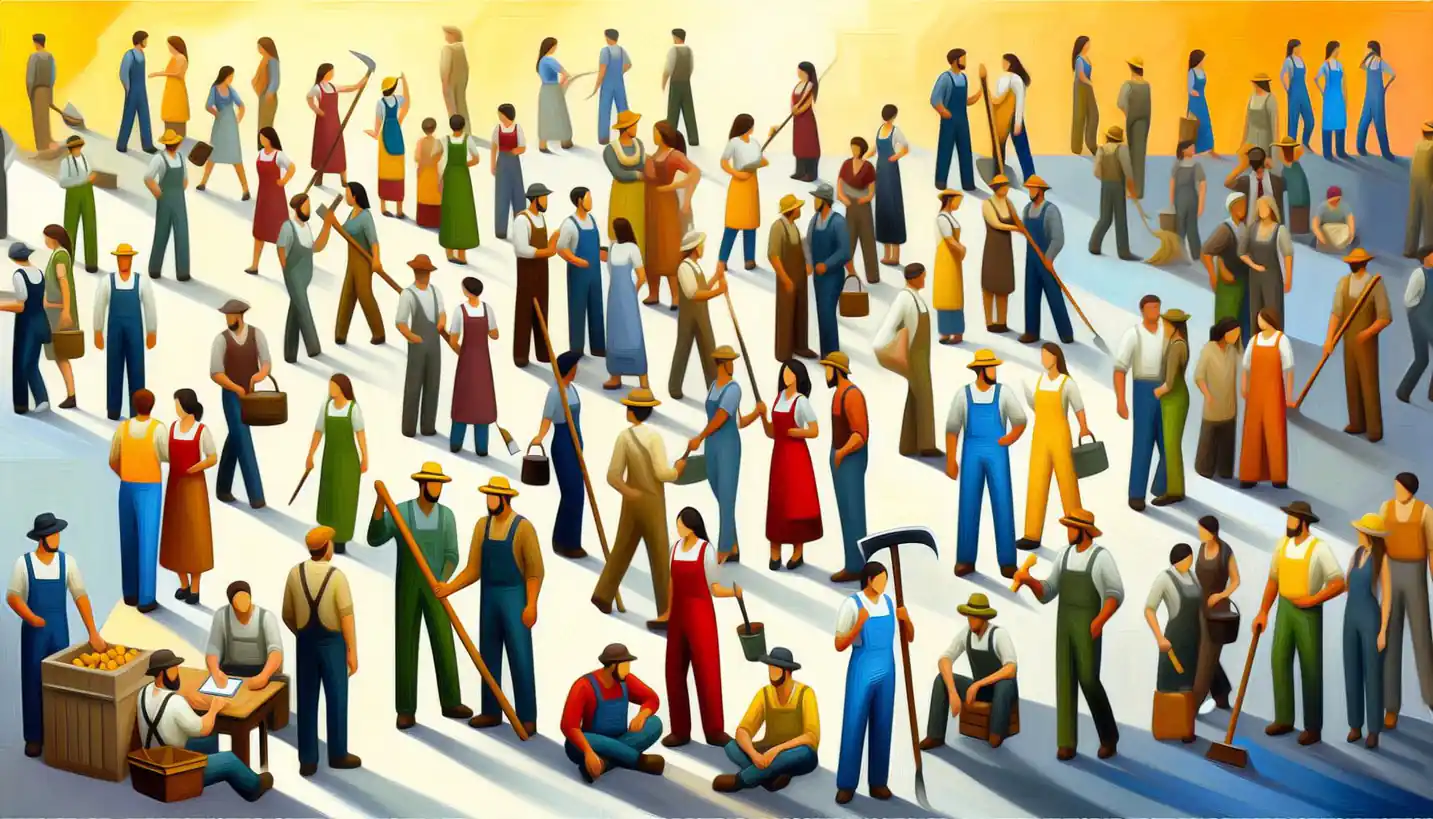· Sociology · 5 min read
Political Influence: Shaping Society in Subtle Ways
Political influence subtly yet profoundly shapes societal norms and policies. Discover the mechanisms behind this power and how they mold our everyday lives.

When we think about political influence, it’s not only about the power of politicians or governments. This concept in political sociology digs deeper into how various elements—from media to public opinion—play roles in shaping decisions that affect our lives.
Understanding political influence is crucial because it touches almost every aspect of society. From what policies get prioritized to how societal norms are established, this force is like an invisible hand guiding many aspects of human life.
The Power Behind the Curtain: Political Influence Explained
Political influence goes beyond mere rules and regulations. Think of it like the wind; you can’t see it, but you can feel its presence in every leaflet that dances along the street. It’s not restricted to official actions taken by governments; it includes everything from public sentiment to social movements.
How Media Shapes Political Influence
In today’s digital age, media holds a tremendous amount of power. From newspapers and TV to social media platforms like Twitter and Facebook, the media is a significant player in shaping public opinion. These platforms can both inform and misinform, leading to a wide range of opinions and influences.
Consider how viral movements gain traction—hashtags like #MeToo have reshaped conversations around important social issues. The media serves as both the mirror and amplifier, reflecting societal concerns while also projecting amplified versions for everyone to see.
The Role of Public Opinion
The collective beliefs and attitudes of the public contribute significantly to political influence. When large groups of people share a belief or support a cause, it can lead to real changes. Think about historical movements like the Civil Rights Movement in the United States. It wasn’t just a few leaders prompting change; it was the collective voice of the people demanding equality and justice, influencing political decisions on a grand scale.
Surveys and opinion polls are vital tools here. They help politicians understand public sentiment, guiding them on what policies to support or oppose. It’s a back-and-forth dance between leaders and the people, each influencing the other.
The Subtlety of Social Movements
Social movements are fascinating examples of political influence. They’re not official political bodies, but they have the power to challenge and change established norms and policies. The environmental movement is a prime instance. Born out of concerns for the planet, activists have influenced policy changes, pushed for green technologies, and altered how industries operate.
These movements highlight how ordinary individuals, when banded together, can wield extraordinary power. They shape laws, alter social perceptions, and inspire others to join the cause.
Lobbyists: The Behind-the-Scenes Players
Another dimension of political influence is lobbying. Lobbyists are individuals or groups hired to influence lawmakers on specific issues. They provide information, expertise, and, sometimes, campaign funding to sway political decisions. While lobbying can lead to positive changes, like supporting beneficial health policies, it can also lead to situations where only a few voices with deep pockets are heard.
Understanding the role of lobbyists helps explain why certain issues gain traction in political realms faster than others. It’s a reminder of the complexity within political influence: money and access can tip the scales of decision-making.
Everyday Impact: Political Influence on Personal Lives
Almost every decision in the political arena has a ripple effect on our daily lives. Consider the policies on education, healthcare, or taxes. These are not just abstract concepts; they affect the schools our kids attend, the healthcare we receive, and the money left in our pockets each month.
Influence in Education
Political influence plays a part in shaping educational systems. Decisions on curriculum standards, funding for schools, and access to resources all come down from political decisions. For example, debates around science education and subjects like evolution versus intelligent design are often politically charged, reflecting broader societal influences.
Healthcare and Political Influence
Healthcare is another area where political influence is heavily felt. Policies dictate who can access what kind of healthcare, how it’s funded, and the level of quality provided. Consider the debates around healthcare reform in countries like the United States, where political battles influence the level and type of care citizens receive.
Why Understanding Political Influence Matters
In a world where change seems constant, understanding political influence gives us insight into the forces shaping our environments. It’s more than just a sociological concept; it’s a tool that helps us decipher why things are the way they are and how they might change in the future.
Think about upcoming elections or major policy debates. Being aware of the influences at play empowers us to make informed decisions, vote with confidence, and perhaps even start new conversations that lead to change. This knowledge becomes a form of power, enabling individuals to not just be passive onlookers, but active participants in the political process.
The Future of Political Influence
Looking forward, political influence is likely to evolve with technological advancements. Artificial intelligence, digital privacy concerns, and the global exchange of ideas will all play a part in shaping how influence is exerted and perceived. The ways we’re connected globally mean that influence doesn’t stop at national borders; it’s a worldwide dance.
Political influence will continue to be an essential element in how societies evolve. By understanding its many facets—media, public opinion, social movements, and beyond—we’re better equipped to engage with it thoughtfully. The future belongs to those who can navigate these waters with insight and intention, using the currents of influence not just to drift along, but to steer toward meaningful change.



